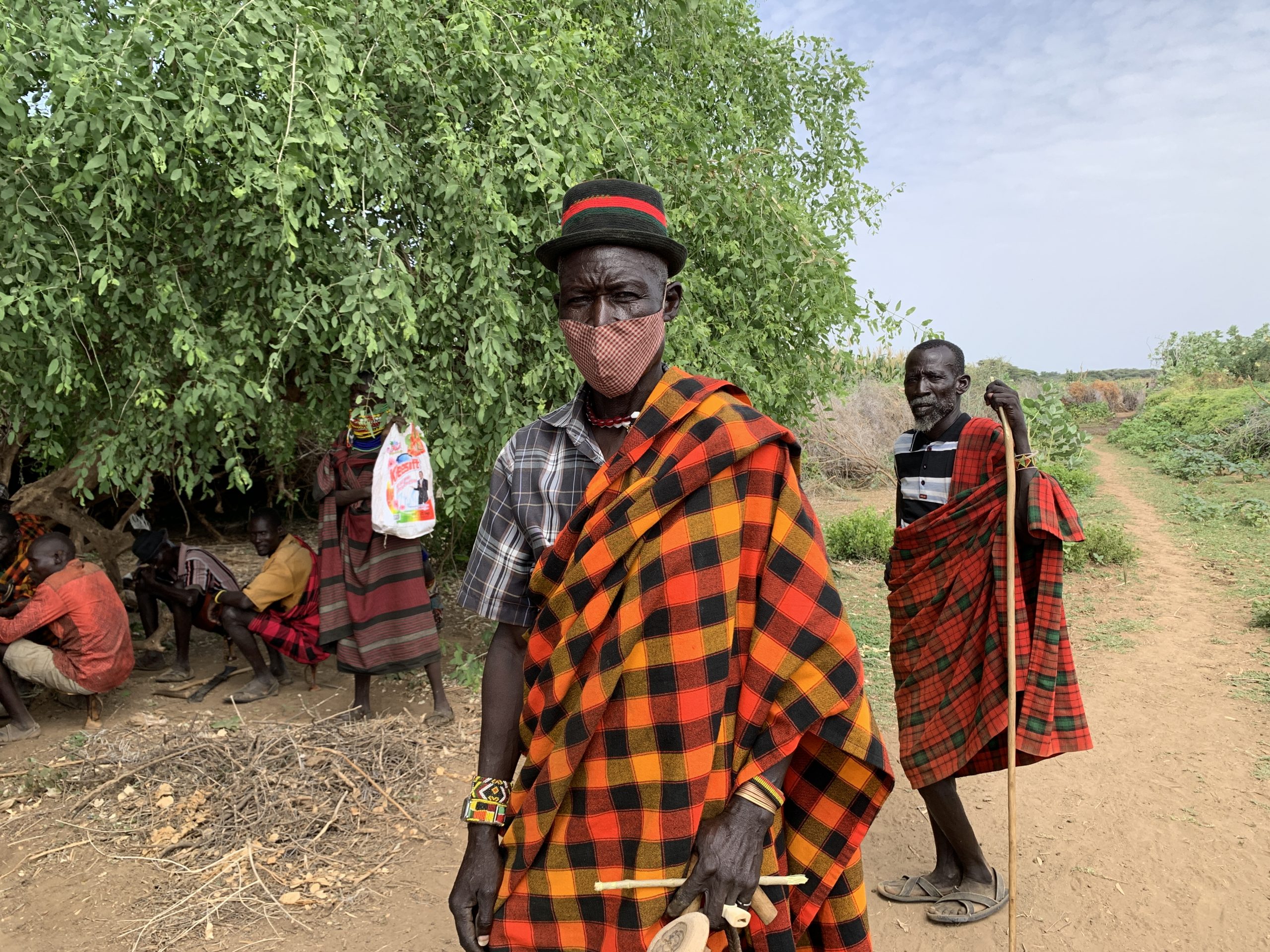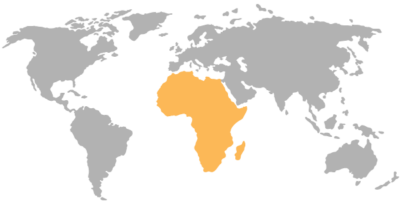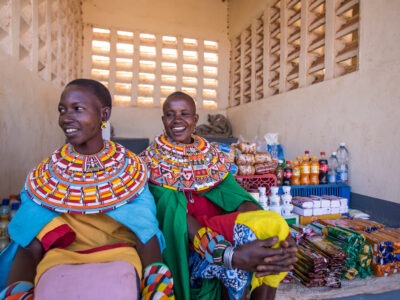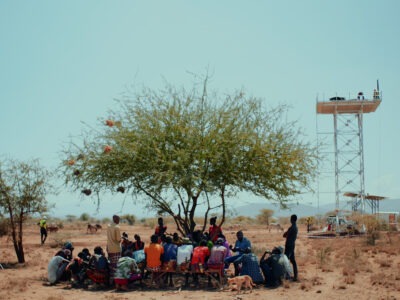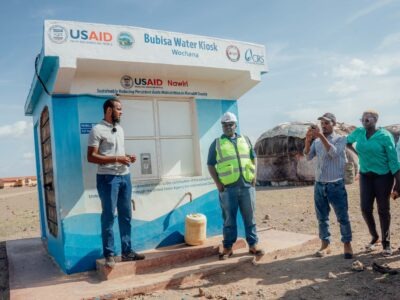The Resilience Learning Activity (RLA) is an Associate Award under the Feed the Future Kenya Livestock Market Systems Activity, a Leader with Associates (LWA) contracting mechanism, held by ACDI/VOCA. This LWA enables USAID missions in the East Africa region to access specialized services. Learn more here.
Background Narrative
The Resilience Learning Activity (RLA) is a five-year, USAID/Kenya and East Africa-funded Activity under the Feed the Future Kenya Livestock Market Systems Leader with Associates (LWA), led by ACDI/VOCA. With the goal of strengthening resilience capacities and evidence-based resilience programming in the Horn of Africa, RLA supports regional, national, and local organizations and institutions in Northern Kenya, Somalia, and the Horn of Africa to undertake analysis while building their capacities for analytics, facilitating learning for adaptive management, and improving knowledge management and communications, advancing the objectives of USAID’s Journey to Self-Reliance (J2SR) and the Horn of Africa Regional Resilience Framework. RLA works closely with the Partnership for Resilience and Economic Growth (PREG), the Horn of Africa Resilience Network (HoRN), and the Somalia Resilience Partnership (SRP) to strengthen their ability to lead, manage, and advance collaboration, learning, and adapting (CLA) in resilience programming.
Led by local actors and focused on the right actors (local governments, local organizations, host country academic institutions, communities, and households), RLA is helping to lay the foundation for strengthening absorptive, adaptive, and transformative capacities of families, communities, and systems that will ultimately ensure the sustainability of resilience programming by local organizations and institutions. As local actors’ capacities for analytics, knowledge management, learning and adaptive management are strengthened and networks and systems for CLA are established, local communities and institutions will increase their resilience capacity to handle shocks and stresses.
Project Objectives
- Increased analytics and analytic capacity for local and host country organizations
- Facilitated learning for adaptative management by local and host country organizations
- Improved knowledge management and strategic communication for local and host country organizations
- Establishing and strengthening systems and networks for CLA
Project Activities and Approaches
Two overarching strategies successfully guide RLA programming:
- Aligning the project with USAID’s Journey to Self-Reliance (J2SR) to advance the goal of strengthening local capacities and working with host country governments and partners to make progress toward self-reliance and locally sustained results. RLA supports partners to pivot to J2SR in their partnership work, facilitating county governments in the six PREG counties to become more engaged in the partnership with USAID, and building the capacity of local organizations through trainings, mentorship, and direct grants.
- Building up Collaboration, Learning, and Adapting (CLA) as a strategy that transcends programmatic sectors, shaping RLA’s approach for building the capabilities of local facilitator organizations to strengthen adaptive management processes within local organizations.
Activities include:
- Facilitate the development of County Resilience Profiles;
- Following data analytics needs assessment, design capacity building training for local organizations;
- Support GIS training at PREG county and Somalia levels;
- Develop shared PREG indicators, measurement, and PREG learning agenda;
- Provide PREG and SEK (Southeast Kenya Coordination Mechanism) backbone support;
- Create a learning community bringing market system actors together, and defining a common learning agenda for implementation;
- Facilitate the development, production, and documentation of knowledge management and communications learning products;
- Support the operationalization of the NDMA knowledge management strategy and platform
Select Achievements and Results to Date
- The project has benefited 4,103 participants from county governments, private sector and local partner organizations through capacity strengthening programs, joint work planning activities, analytical technical assistance, experiential learning sessions, among others.
- Trained 308 County Directors in the nine target Counties on knowledge management and strategic communications trainings from the county departments of economic planning, water and sanitation, agriculture, health in addition to senior county leadership.
- Strengthened the capacities of six County governments with skills needed to achieve the Journey to Self-Reliance (J2SR) goal. The capacity building activities include technical assistance on knowledge management, data analytics trainings, targeting and layering to avoid duplication of efforts.
- The project has trained members of six County Steering Groups, local partner organizations, and private sector players to use data analytics to influence evidence-based decisions, use of social media to effectively disseminate unbiased information.
Activity Resources
Activity Documents and Videos
Access the Annual Program Statement (APS): Technical and Capacity Building Grants under the Resilience Learning Activity, uploaded October 20, 2021, here.
View the “County-Owned, County-Led: Strengthening KM & Communications Capacities at County Level, Kitui County” video here, uploaded July 2021.
Access the Strengthening County Governments’ Resilience Capacities Through Knowledge Management and Strategic Communications Practices PowerPoint, July 2021.
Access the Isiolo County Government CLA Case Story
Access the National Drought Management Authority Learning Brief
Access the Locally Led Joint Documentation Initiative
Access the Making Data Systems Work for Counties Briefer
Recent Learning Briefs (Mid-2022)
Enhancing Community Learning to Increase Adaptive Capacity to Shocks and Stresses in Taita Taveta County
To offer a platform for implementing partners and private sector players to demonstrate their resilience-centric services and activities, the USAID Kenya/East Africa Resilience Learning Activity facilitated the Centre for Strategic Development as it hosted an Inaugural County Resilience Knowledge Fair at the Taita Taveta University. The fair was co-hosted by the National Drought Management Authority, Taita Taveta County and Taita Taveta University.
Access the Resilience Knowledge Fair Learning Brief here.
Developing and Strengthening Knowledge Management Systems Through Partnerships
USAID Kenya/East Africa Resilience Learning Activity (RLA) facilitated the Centre for Strategic Development (CSD) to pilot a process through which Early Warning Bulletins produced by NDMA are translated from English to Swahili, validated and disseminated to the community in Taita Taveta County. As such, CSD engaged the Research Department of TTU and NDMA’s County Officials to develop a framework that was used to translate the bulletins.
Access the Early Warning Learning Brief here.
Promoting County-Led Coordination to Build Resilience of Local Communities in Northern Kenya
Through its five-year funded Resilience Learning Activity (RLA), USAID has been at the forefront of collaborating with the County Government of Samburu, to create a joint work plan (JWP), and think collaboratively to discover points of intersection within the development activities. RLA serves as the secretariat of all the other USAID-funded programs that operate under the Partnership for Resilience and Economic Growth (PREG). This learning brief summarizes the Joint Work Planning process mechanisms, including the lessons learned, challenges and recommendations to improve future sessions. The methodology of developing this brief was through an extensive desk review of the 2019/2020 and 2020/2021 JWP documents and interviewing the RLA technical team that led the process.
Access the Joint Work Planning Learning Brief here.
Garissa PREG Joint Monitoring Visit
The Resilience Learning Activity (RLA) together with the PREG leadership in Garissa County jointly supported all PREG partners: Livestock Market Systems (LMS), ROAD, World Food Programme (WFP) , UNICEF, Alight Core Group, World Vision, and Save the Children in collaboration with Garissa County Government and their line entities that included representatives from the following county departments: Agriculture, Livestock and Nutrition, Special Programs, Cooperatives, Partnership and Donor Coordination, Water, and Communication. The monitoring visit was a weeklong visit divided into two zones, the first zone one covering six northern (3) and southern (3) sub-counties.
Access the PREG Joint Monitoring Visit Learning Brief here.
Building Community Resilience Through RadioProgramming in Makueni and Taita Taveta Counties
To maximize the impact of the resiliency radio program, the USAID Kenya/East Africa Resilience Learning Activity (RLA) collaborated with the National Drought Management Authority (NDMA), Kenya Red Cross Society (KRCS), Kenya Metrological Department (KMD), and county officials in the SEK. The program selected each of these actors based on the community’s trust in their ability to further inform resiliency strategies through effective dissemination of information for effective planning and response through radio programming.
Access the Radio Programming Learning Brief here.
Opening photo credit: Mark Wambui

